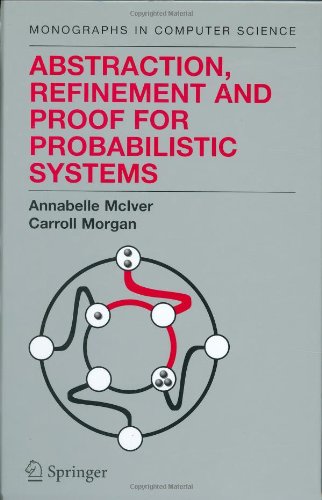

Most ebook files are in PDF format, so you can easily read them using various software such as Foxit Reader or directly on the Google Chrome browser.
Some ebook files are released by publishers in other formats such as .awz, .mobi, .epub, .fb2, etc. You may need to install specific software to read these formats on mobile/PC, such as Calibre.
Please read the tutorial at this link: https://ebookbell.com/faq
We offer FREE conversion to the popular formats you request; however, this may take some time. Therefore, right after payment, please email us, and we will try to provide the service as quickly as possible.
For some exceptional file formats or broken links (if any), please refrain from opening any disputes. Instead, email us first, and we will try to assist within a maximum of 6 hours.
EbookBell Team

4.3
28 reviewsProbabilistic techniques are increasingly being employed in computer programs and systems because they can increase efficiency in sequential algorithms, enable otherwise nonfunctional distribution applications, and allow quantification of risk and safety in general. This makes operational models of how they work, and logics for reasoning about them, extremely important.
Abstraction, Refinement and Proof for Probabilistic Systems presents a rigorous approach to modeling and reasoning about computer systems that incorporate probability. Its foundations lie in traditional Boolean sequential-program logic—but its extension to numeric rather than merely true-or-false judgments takes it much further, into areas such as randomized algorithms, fault tolerance, and, in distributed systems, almost-certain symmetry breaking. The presentation begins with the familiar "assertional" style of program development and continues with increasing specialization: Part I treats probabilistic program logic, including many examples and case studies; Part II sets out the detailed semantics; and Part III applies the approach to advanced material on temporal calculi and two-player games.
Topics and features:
* Presents a general semantics for both probability and demonic nondeterminism, including abstraction and data refinement
* Introduces readers to the latest mathematical research in rigorous formalization of randomized (probabilistic) algorithms * Illustrates by example the steps necessary for building a conceptual model of probabilistic programming "paradigm"
* Considers results of a large and integrated research exercise (10 years and continuing) in the leading-edge area of "quantitative" program logics
* Includes helpful chapter-ending summaries, a comprehensive index, and an appendix that explores alternative approaches
This accessible, focused monograph, written by international authorities on probabilistic programming, develops an essential foundation topic for modern programming and systems development. Researchers, computer scientists, and advanced undergraduates and graduates studying programming or probabilistic systems will find the work an authoritative and essential resource text.